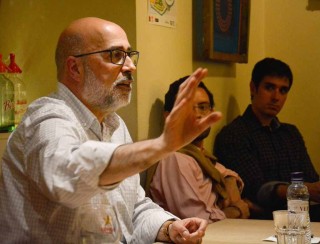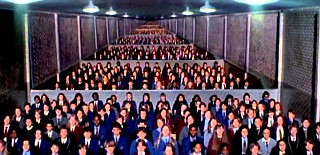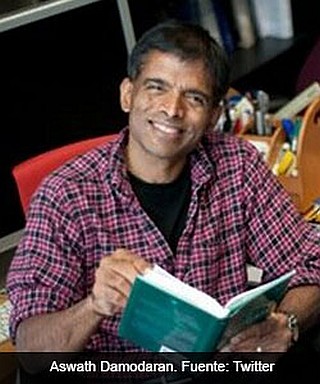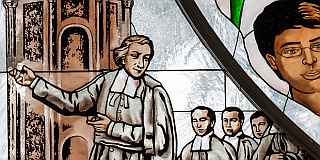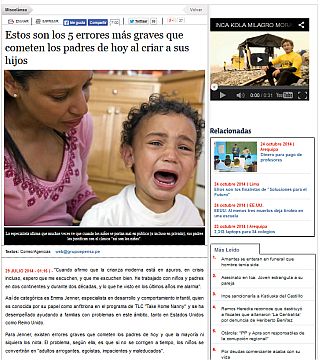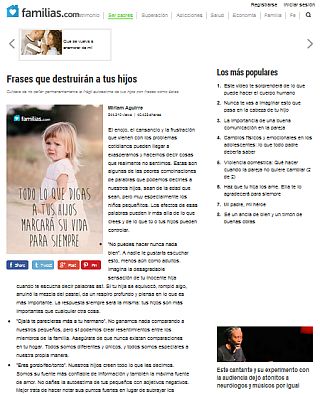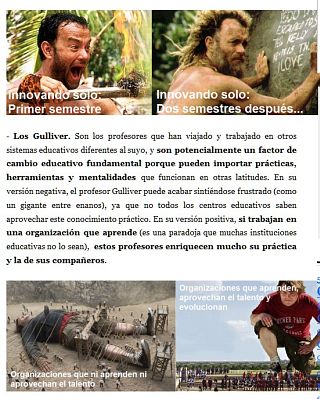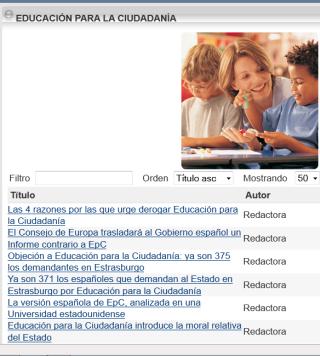EL ARTE DE LAS ARTES: educar un niño
Leí en la revista ARBIL de INTERNET, un artículo de Tomás Melendo, con diez consejos para educar a un niño, y me ha gustado:
1.- AMAR AL NIÑO: buscar su bien en todo lo que se le haga.
2.- AMARSE LOS DOS ESPOSOS: el niño es feliz si ve que sus padres se quieren.
3.- ENSEÑARLE A QUERER: el egoísmo puede hacerle fracasar en la vida.
4.- DARLE BUEN EJEMPLO: el ejemplo influye más que las palabras.
5.- ELOGIARLE LO DIGNO DE ELOGIO: el elogio ayuda más que la reprimenda y el castigo.
6.- EJERCER LA AUTORIDAD CON CARIÑO PERO CON FIRMEZA: si no aprende a obedecer, va a sufrir mucho en la vida. Normas pocas, claras y en cosas fundamentales. En lo no importante, dejar libertad.
7.- REGAÑAR Y CASTIGAR CUANDO SEA NECESARIO: pero que el niño vea que se hace por su bien. Hacerlo en privado y con serenidad. Nunca airados o delante de otras personas. Ni compararlo con otros mejores que él.
8.- FORMARLES LA CONCIENCIA: que no se dejen influir por la ideas malsanas de la televisión o INTERNET. Motivarles las ideas rectas.
9.- NO MIMARLOS: condescender a sus caprichos es perjudicarle.
10.- EDUCAR SU LIBERTAD: No es libre el que hace lo que se le antoja: ése es esclavo de sus apetitos. Es libre el que elige voluntariamente lo bueno.
Y PARA HACER BIEN TODO ESTO, PEDIR AYUDA A DIOS Y ENCOMENDARLO A SU ÁNGEL DE LA GUARDA.
JORGE LORING, S.I.

